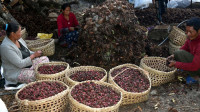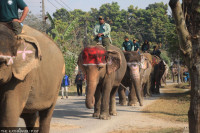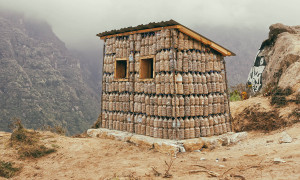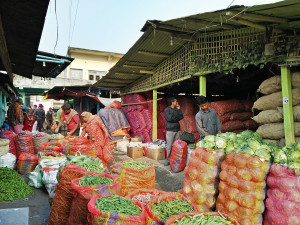Money
Traders rush to procure goats as Dashain nears
With Dashain around the corner, traders have been rushing around the country to procure goats which they fear could become scarce due to the continuing unrest in the Tarai plains. A large number of goats and fowls are slaughtered for the festival feasting which occurs in October.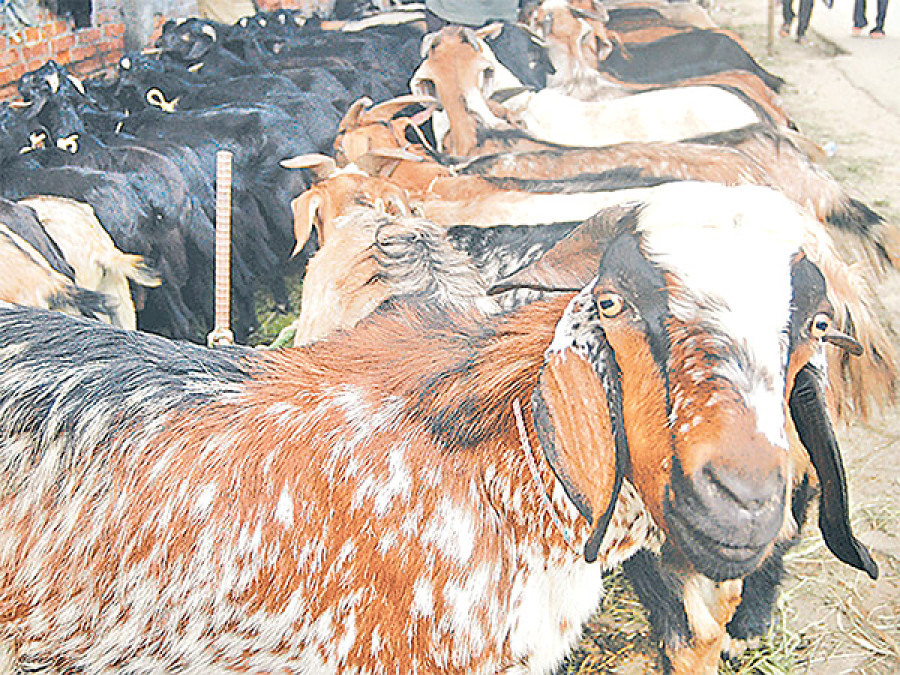
With Dashain around the corner, traders have been rushing around the country to procure goats which they fear could become scarce due to the continuing unrest in the Tarai plains. A large number of goats and fowls are slaughtered for the festival feasting which occurs in October.
Kathmandu is the largest market for the sacrificial animals, and goat traders want to have adequate stocks for the celebrations by bringing live goats from different parts of the country as well as from India. Nepal Food Corporation (NFC) has slashed its supply target by half citing difficulties in procuring goats due to the protests in the Tarai.
“Our main source for goats is the Tarai region, but we are
not able to go ahead with the procurement process due to the strikes,” said Shree Mani Khanal, spokesperson at the state-owned corporation.
The corporation expects to bring 15,000 goats for the this year’s Dashain against 30,000 in previous years. According to him, the corporation procures goats from places like Nepalgunj, Banke, Surkhet, Salyan, Dang, Gaighat and Siraha, among other Tarai districts.
“We are trying to have all the animals on order shipped on time, but we are not sure whether we can do so with the banda continuing,” said Khanal. Khanal added that they were also planning to bring 1,000 mountain goats from various hill regions like Mustang, Manang, Sindhupalchok and Lamjung to make up for the shortage of goats.
Private traders said that the supply of goats had been greatly affected, adding that prices were likely to go up during this Dashain. “Demand swells during the festive season, but the supply from the main source has been totally disrupted,” said Deepak Thapa, president of the Nepal Livestock Traders Association.
He added that consumers may have to face price hikes. Live goats have already become dearer in the valley. They now cost Rs450 to Rs465 per kg compared to Rs425 to Rs435 last year. Butcher shops are selling mutton at Rs850 per kg against Rs800 last month.
According to Thapa, the current requirement for meat is being fulfilled by various hill regions. “Small shipments of goats are coming from India during the night to avoid the highway blockades. A few goats are being shipped to Kathmandu from surrounding districts like Dhading, Nuwakot, Sindhuli and Kavre,” said Thapa.
Private traders usually bring 30,000 to 35,000 goats to be slaughtered during Dashain. According to the association, around 80 percent of the festive demand is met by Indian imports. Thapa said that the supply of mountain goats would also be disrupted due to roadblocks on Arniko Highway.




 14.12°C Kathmandu
14.12°C Kathmandu
